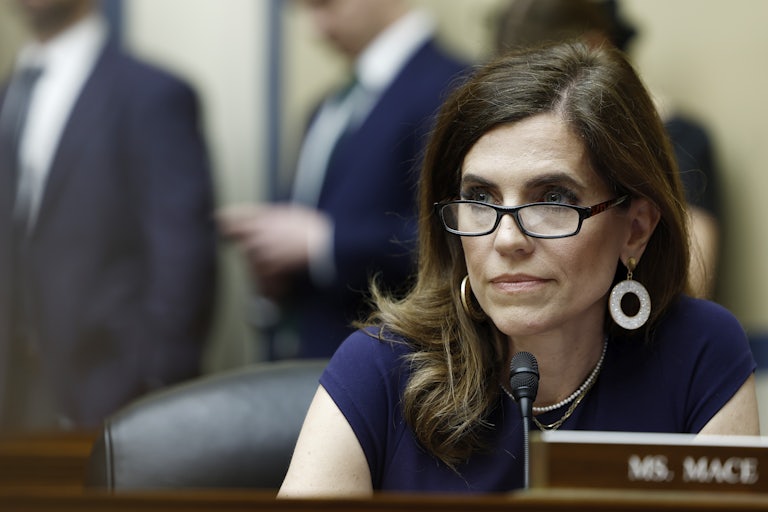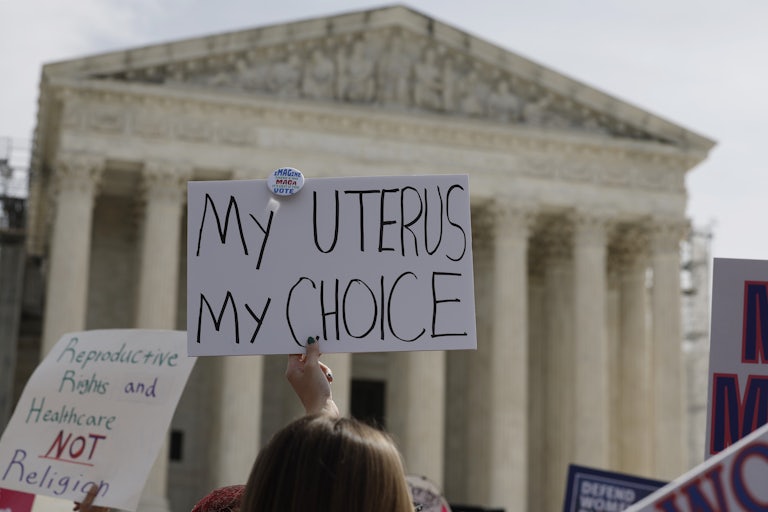Internet Hilariously Roasts Nancy Mace’s Latest Hypocrisy
The South Carolina representative can’t outrun her own actions.

South Carolina Republican Representative Nancy Mace bragged about her record supporting civil rights—but was quickly called out for leaving out a major detail.
Mace appeared on CNN Wednesday night to discuss the House vote to hold Attorney General Merrick Garland in contempt of Congress for refusing to turn over audio of President Joe Biden’s classified documents case interview with special counsel Robert Hur. Speaking with Laura Coates, Mace bravely posed as a guardian of due process.
“I work on a lot of civil rights issues. I was the ranking member of the civil rights subcommittee last session on oversight. Due process is a really important issue,” she said. Mace did not, however, mention why she’s no longer the ranking member of the subcommittee: She helped lead the charge to disband it.
Shot / Chaser pic.twitter.com/txetWc7gTJ
— Acyn (@Acyn) June 13, 2024
It’s not the first time Mace has trotted out this defense. In January, at a House Oversight Committee hearing during which Hunter Biden testified, she tried to beat back criticism from Texas Representative Jasmine Crockett that she had misused the term “white privilege” while questioning Biden, citing her former ranking position on the subcommittee.
“I take great pride as a white female Republican to address the inadequacies in our country,” Mace said.
Representative Alexandria Ocasio-Cortez quickly pointed out, though, that Mace’s position appeared more valuable to her as a title to be wielded over Democrats than an actual leadership role in safeguarding the rights of minorities across the country. After all, the subcommittee did not just cease to exist. Mace, along with Kentucky Representative and abortive Biden impeachment architect James Comer, had overseen its elimination in early 2023.
Crockett had noted during the hearing that “rather than squandering their authority on investigations of the president’s family, the chairman and House Republicans should use their authority to conduct oversight and investigate the merciless murders of innocent Americans—mainly Americans who look like me—at the hands of law enforcement.”
That hasn’t stopped Mace—who has been in the news recently for potential ethics violations and mistreatment of staff—from loudly proclaiming her civil rights bona fides when they are of political use to her. Right-wing retconning of the conservative civil rights record is nothing new, however; they’ve done it about Martin Luther King Jr., the Civil Rights Act, and plenty of other now-popular causes they once opposed. But as the right continues to openly repudiate those civil rights achievements, Mace’s convenient lie of omission may become increasingly rare.











